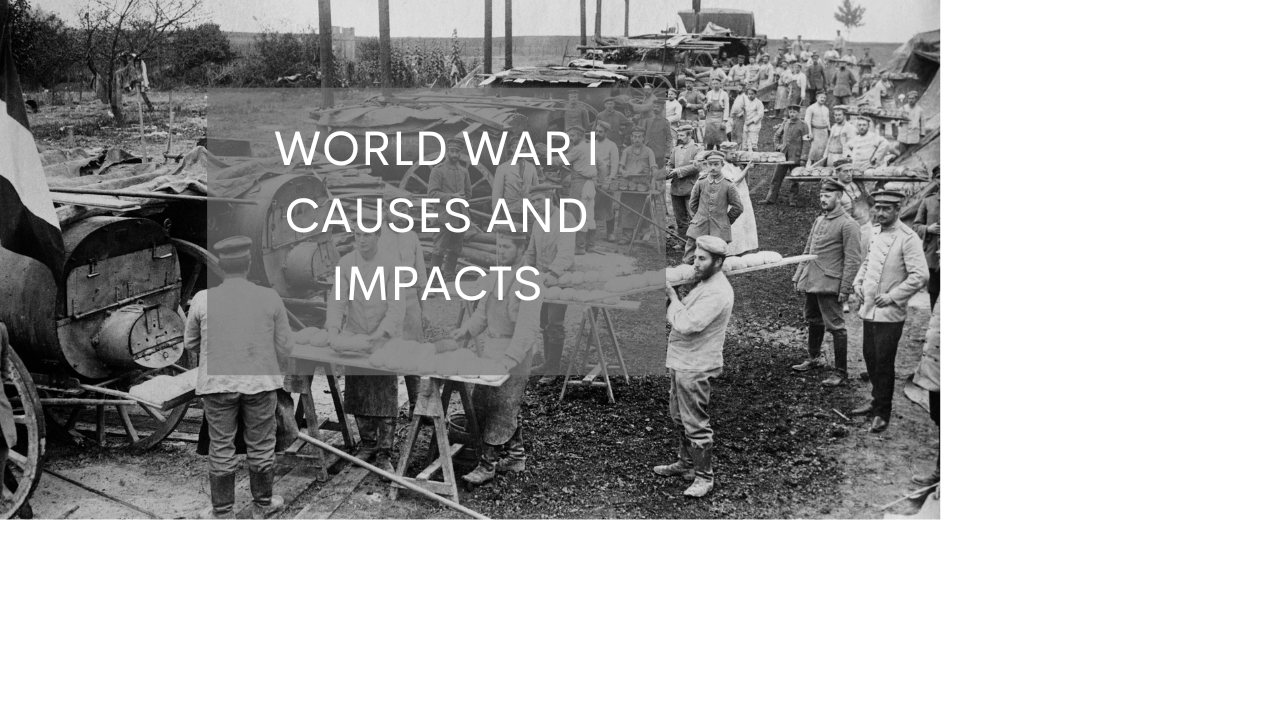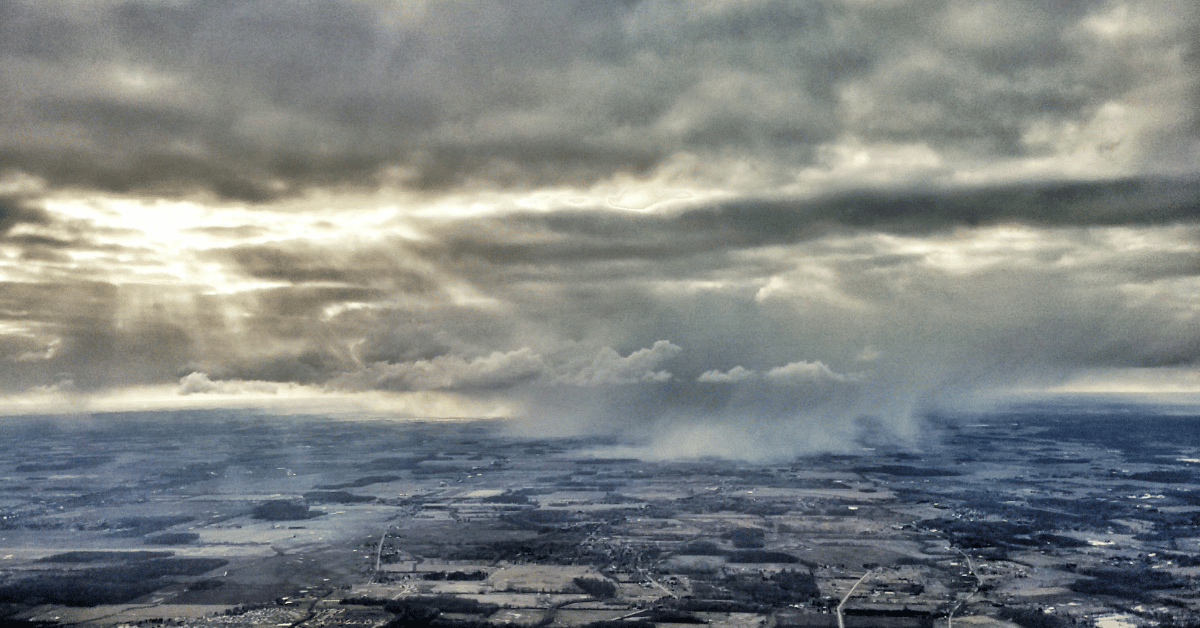Was the assassination of Franz Ferdinand the only reason for world war 1 or it was actually a “Game of Thrones”?
World War 1 is considered the first deadliest full-scale war which engulfed the entire world in it. Around 8.5 million people died. It was thought that the world would never witness such huge bloodshed in years to come, but it saw another World War just 20 years after the first one. And that’s how its name was changed from ‘Great War’ to ‘World War 1’.
A brief background of World War 1
The map of Europe was quite different from that of the present day. There was an Austro-Hungarian Empire which was way bigger than today’s Austria and Hungary. There was a German Empire and a Russian Empire. Today’s Turkey was Ottoman Empire and of course, there was the world’s biggest Empire, the British Empire. In Eastern Europe, Serbia, Bulgaria, Bosnia, and Romania were collectively called Balkan Countries. These countries were under the control of the Ottoman Empire. Then a war was fought between Russian Empire and the Ottoman Empire in which the Russian Empire was backing the Balkan Countries to get freedom from the Ottoman Empire.
Treaty of Berlin, 1878
This war culminated in the Treaty of Berlin. According to this treaty, Austro- Hungarian Empire was given the right to administer Bosnia and Herzegovina temporarily, but these will officially remain part of the Ottoman Empire. Seeing the instability in the Ottoman Empire, the Austro-Hungarian Empire contravened the Treaty of Berlin and annexed Herzegovina and Bosnia.
Demand for South-Slavic Nation: Yugoslavia
The public of Bosnia did not accept this annexation and they wanted freedom. Not only Bosnia opposed this annexation, but Serbia also did. It was because of the geographical and ethnic connections with Bosnia. People of Eastern countries have a common ethnicity of ‘Slavs’. They demanded a South Slavic nation. Despite a secret deal between the Russian Empire and the Austro-Hungarian Empire, the former had to support Serbia because of the presence of many Slavs in the Russian Empire. But the situation of full-scale war was averted because of the indifference of France towards supporting the Russian Empire and the German Empire’s assurance to back the Austro-Hungarian Empire in case of war.
Why the World War 1 broke out?
The assassination of Franz Ferdinand sparked World War 1. It happened as a result of the young Bosnia Revolution in which Bosnia and Herzegovina not only demanded freedom, but they also demanded the formation of Yugoslavia uniting Serbia. On 28 June 1914, the prince of Austro Hungarian Empire, Franz Ferdinand, and his wife were assassinated by a revolutionary named Gavrilo Princip. And the Austro-Hungarian Empire suspected Serbia behind this assassination and declared war on Serbia.
How did this war turn into World War 1?
Well, honestly speaking, the assassination of Franz Ferdinand was not only the reason for World War 1. There were also other reasons which were equally responsible for this war.
Causes of World War 1
Formation of Allied Powers and Central Powers
The political situation in Europe was very unstable and every country was forging alliances on the back of the other. The entire world was divided into two groups
– Allied Powers (Great Britain, Russia, France, Japan, and the US later) as a result of Triple Entente and Central Powers (the Ottoman Empire, Austro-Hungarian Empire, and Germany) as a result of Triple Alliance. Colonies of the Empires automatically became part of the war and millions of people across the world participated in the war. That’s how it became World War.
World War 1: a chain of Friendship
The Russian Empire rushed to save Serbia and Germany backed the Austro- Hungarian Empire. Somehow, France also got into the war and supported the Russian Empire. The Ottoman Empire supported the Austro-Hungarian Empire owing to enmity with Russia. The British Empire helped Russia owing to Triple Entente.
Militarism
The other reason for WW1 was the increased ‘Militarism’. This militarism was being supported by increasing military weapons production in Britain, the USA, and Germany. In 1914, the combined military spending of Germany, Austria Hungry, France, Italy, and Russia was 400 million pounds.
Imperialism
Imperialism was another major reason for World War 1. All the Great Powers wanted to expand their territories. Their main target was Africa because of its diamond mines and cheap labor. This race for Africa is often termed as ‘Scramble for Africa’. Owing to multiple countries rushing to Africa, the differences increased which led to the war. Some experts call imperialism the highest stage of capitalism. Henry Ford, a capitalist, said, “Do you know the cause of war? It’s capitalism, greed, and the dirty hunger for dollars. Take away the capitalist, and you will sweep war from the earth.”
Nationalism
Nationalism was also one of the reasons for the war. On one side, it was based on a race that “my country is the best” and having an aggressive attitude towards others considering them inferior. On the other hand, Wars were being glorified and people thought that this war is for their independence. They will get freedom right after the war ends. This war was also termed as the war of glory.
Impacts of the World War 1
- The Allied Powers won this war.
- As a result of the war, the Austro-Hungarian Empire, the Ottoman Empire, the German Hohenzollerns, and the Russian Romanovs all lost their imperial dynasties.
- The massive movement of refugees and soldiers exacerbated one of the deadliest influenza pandemics in recorded history, commonly known as the “Spanish flu.”
- The map of Europe underwent a permanent change as lands were distributed among the triumphant Allied powers.
- Chemical weapons such as phosgene and mustard gas were also used, in addition to the advent of modern technology and weapons including aerial combat, tanks, and machine guns. A protocol adopted at the 1925 “Geneva Conference” for the direction of the “International Traffic” in Arms placed limitations on the use of chemical and biological weapons.
- The emergence of nationalist feelings in Central and Eastern Europe contributed to the outbreak of World War II.
Fun Fact about World War 1
The monarch of Germany was Kaiser Wilhelm. The Russian monarch was Nicholas II and the British king of the head was King George V. The fun fact is all these monarchs were first cousins of one another. So, don’t you think this war was actually a “Game of Thrones?”




One Comment on “World War 1: causes and impacts”